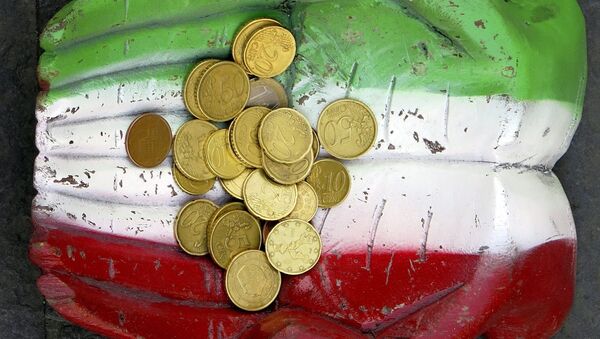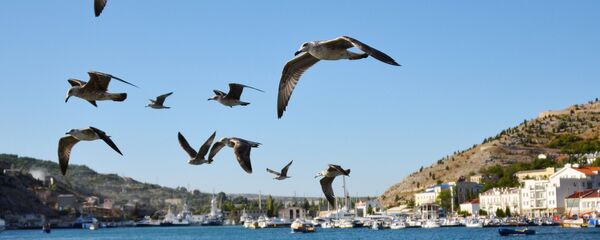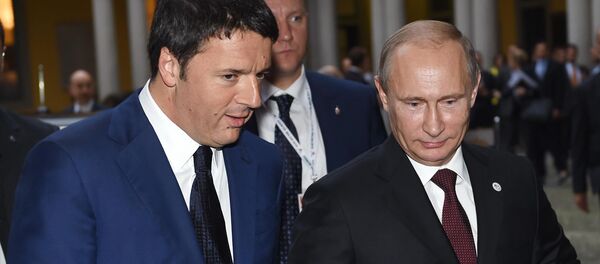"In Italy, there is a consensus of the leading political forces, regardless of party affiliation, about the importance of retaining the traditionally high-level ties with Russia," Razov said in an interview with RIA Novosti.
On Wednesday, a group of Italian lawmakers from the Five Star Movement (M5S) suggested holding a parliamentary vote on lifting anti-Russian sanctions before July 31, ahead of the EU summit that is due to decide on the matter.
The initiative is an important indicator of public mood in Italy, Razov stressed, noting that other major political parties have a similar stance to the M5S, including Forza Italia, Lega Nord and the National Alliance, as well as such prominent figures as former prime ministers Silvio Berlusconi and Romano Prodi and a number of regional legislative assemblies, which have voted or plan to vote on the issue.
The ambassador was highly positive in evaluating the results of the SPIEF, stressing that Renzi's appearance and meeting with Putin indicate Italy's desire to minimize damage to Italian-Russian ties amid the crisis in EU-Russian relations.
"At the same time, reality must be acknowledged. Italy is an EU and NATO member, and it is subject to the demands of block discipline and euroatlantic solidarity," Razov said.
Since 2014, relations between Russia and the European Union deteriorated amid the crisis in Ukraine. Brussels, Washington and their allies have introduced several rounds of anti-Russia sanctions since the reunification of Crimea with Russia in 2014, accusing Moscow of meddling in the Ukrainian conflict. Russia has repeatedly refuted the allegations, warning that the Western sanctions are counterproductive and undermine global stability.




